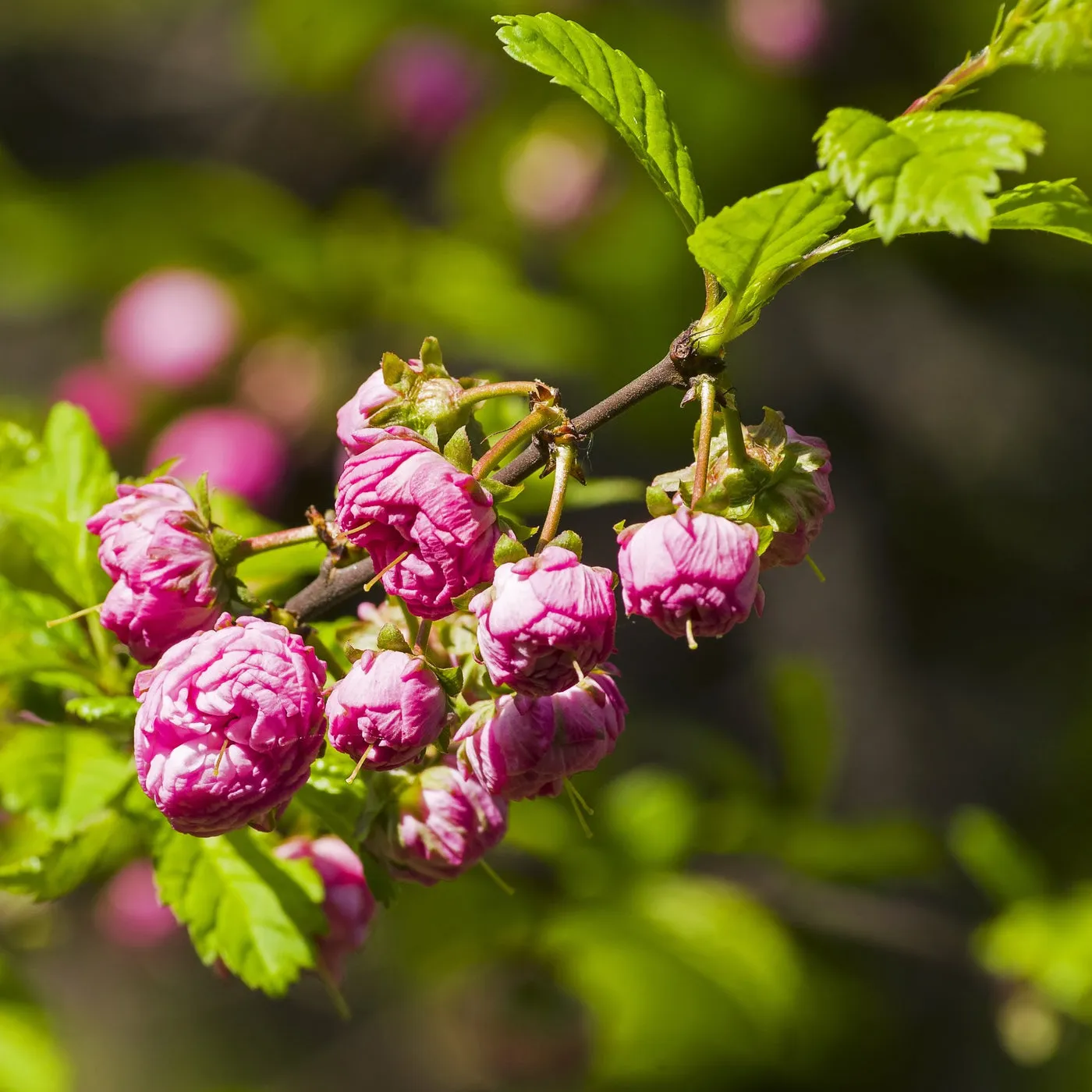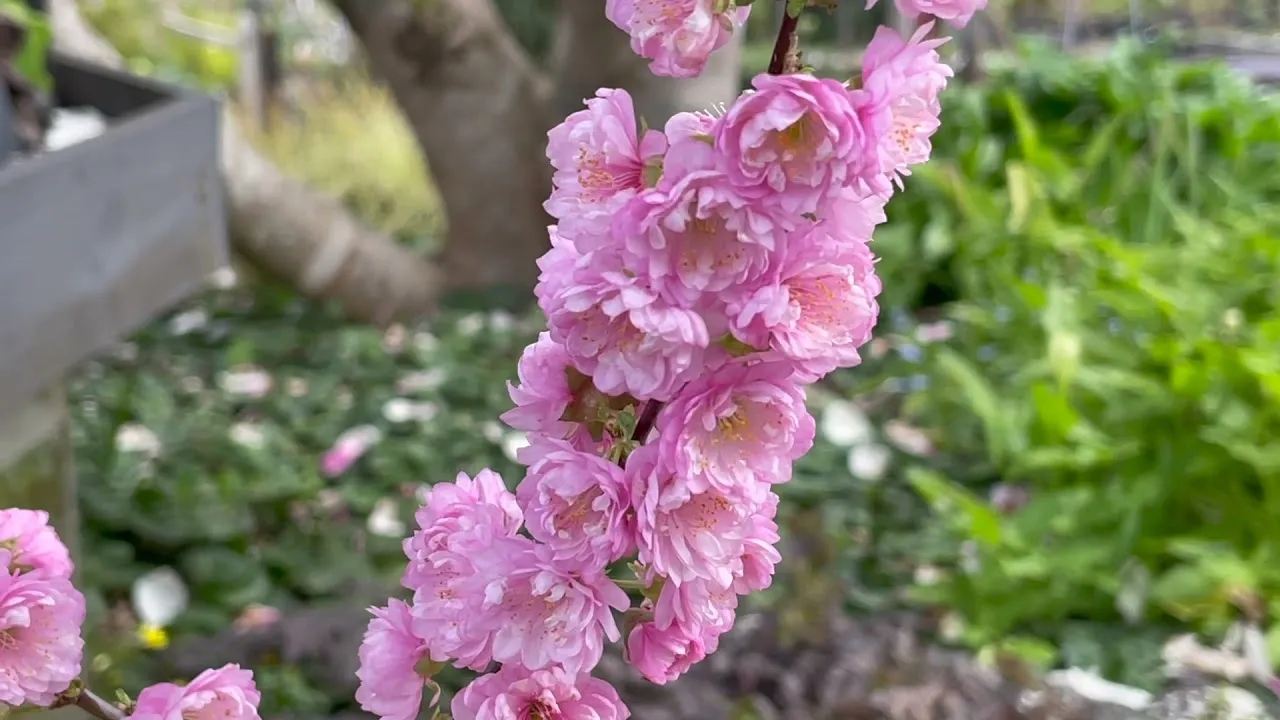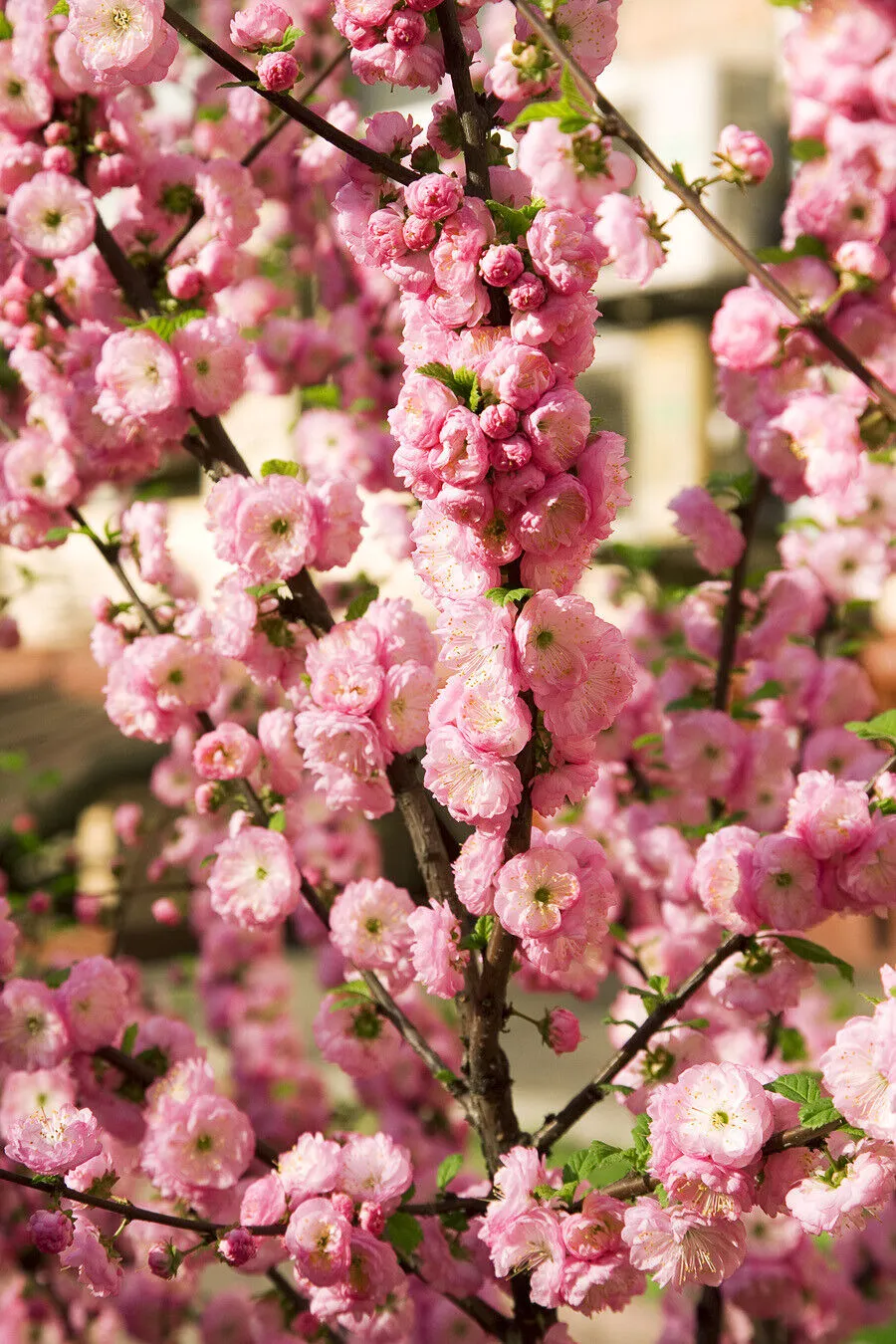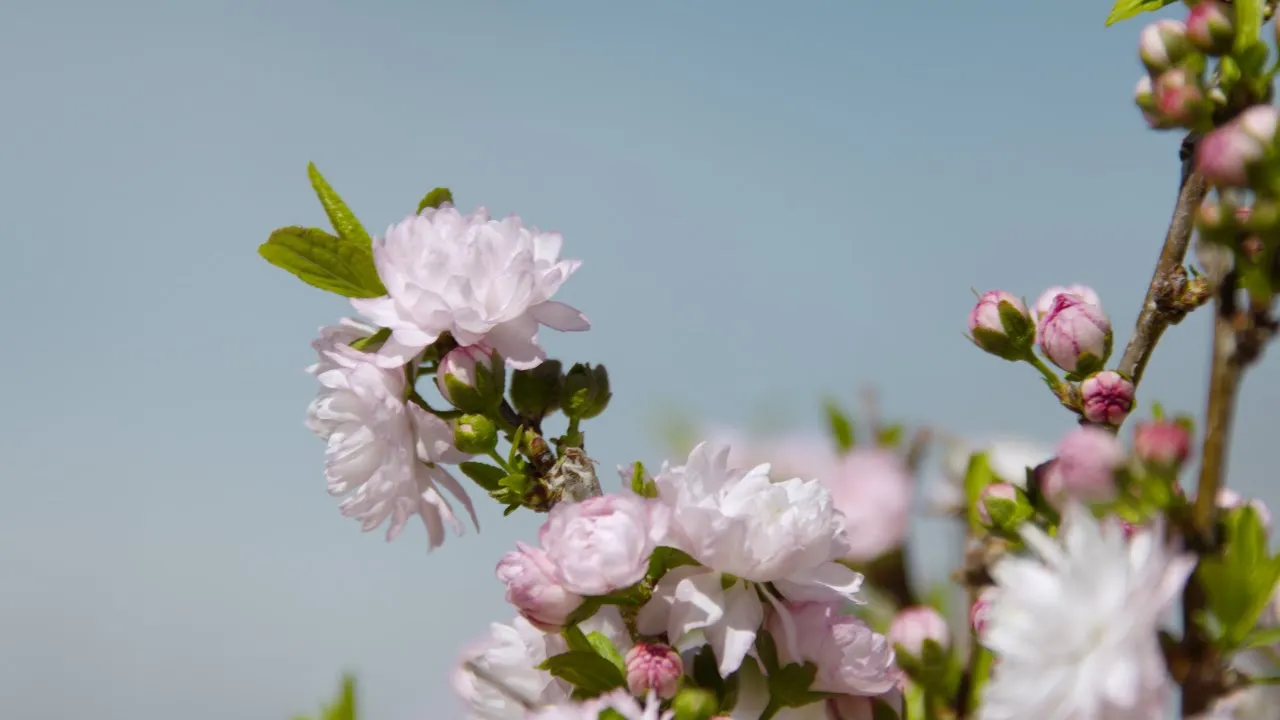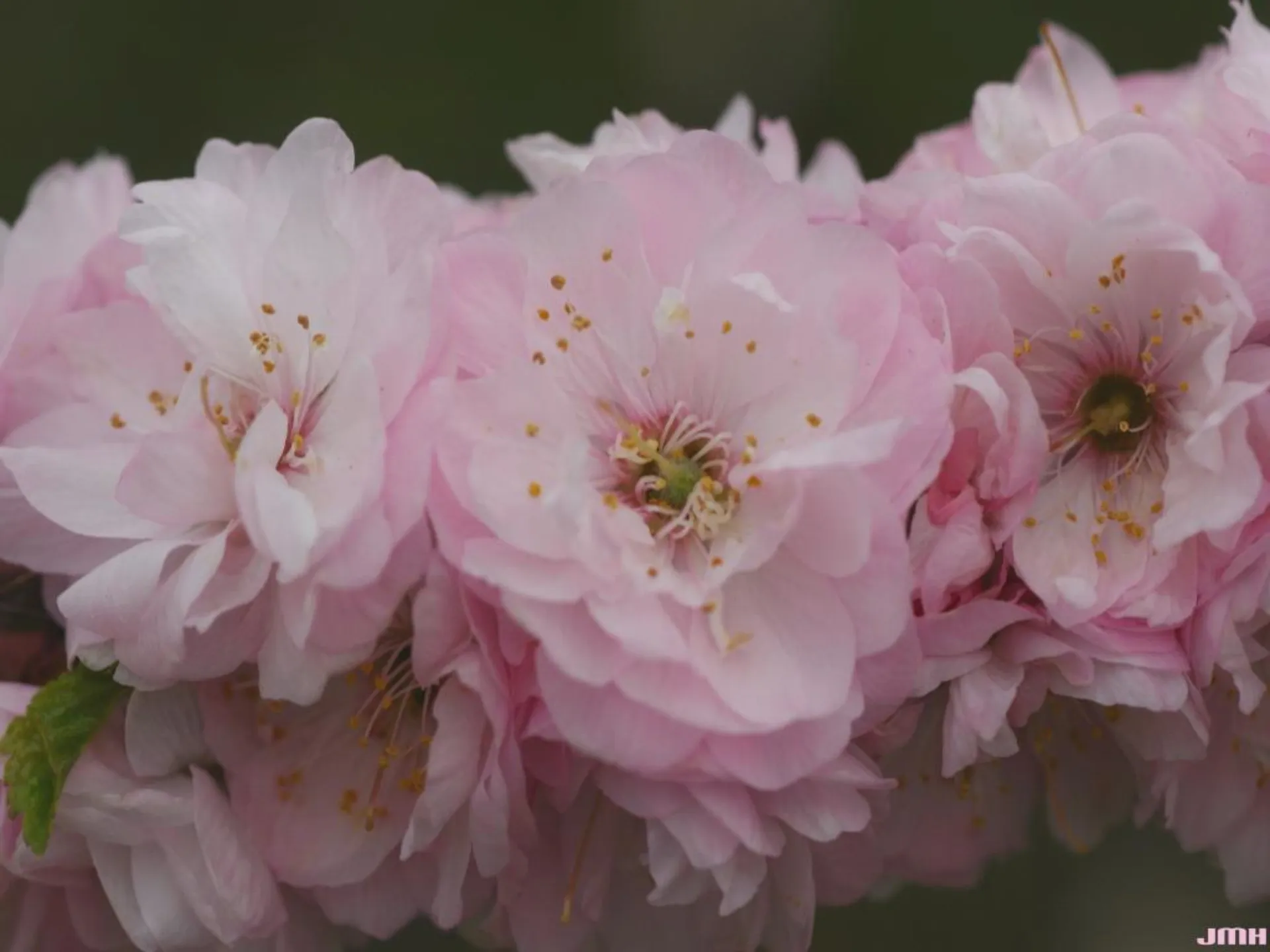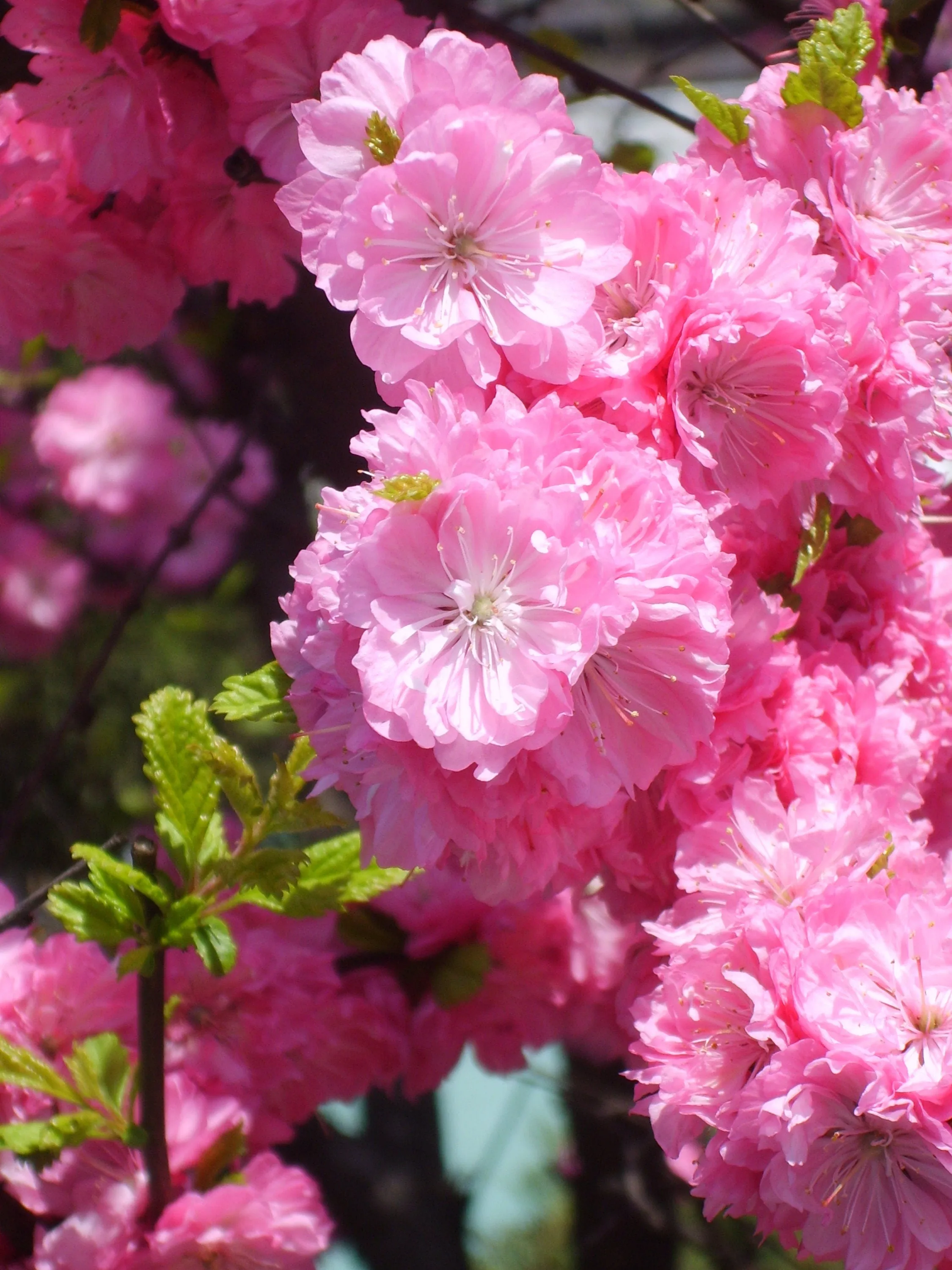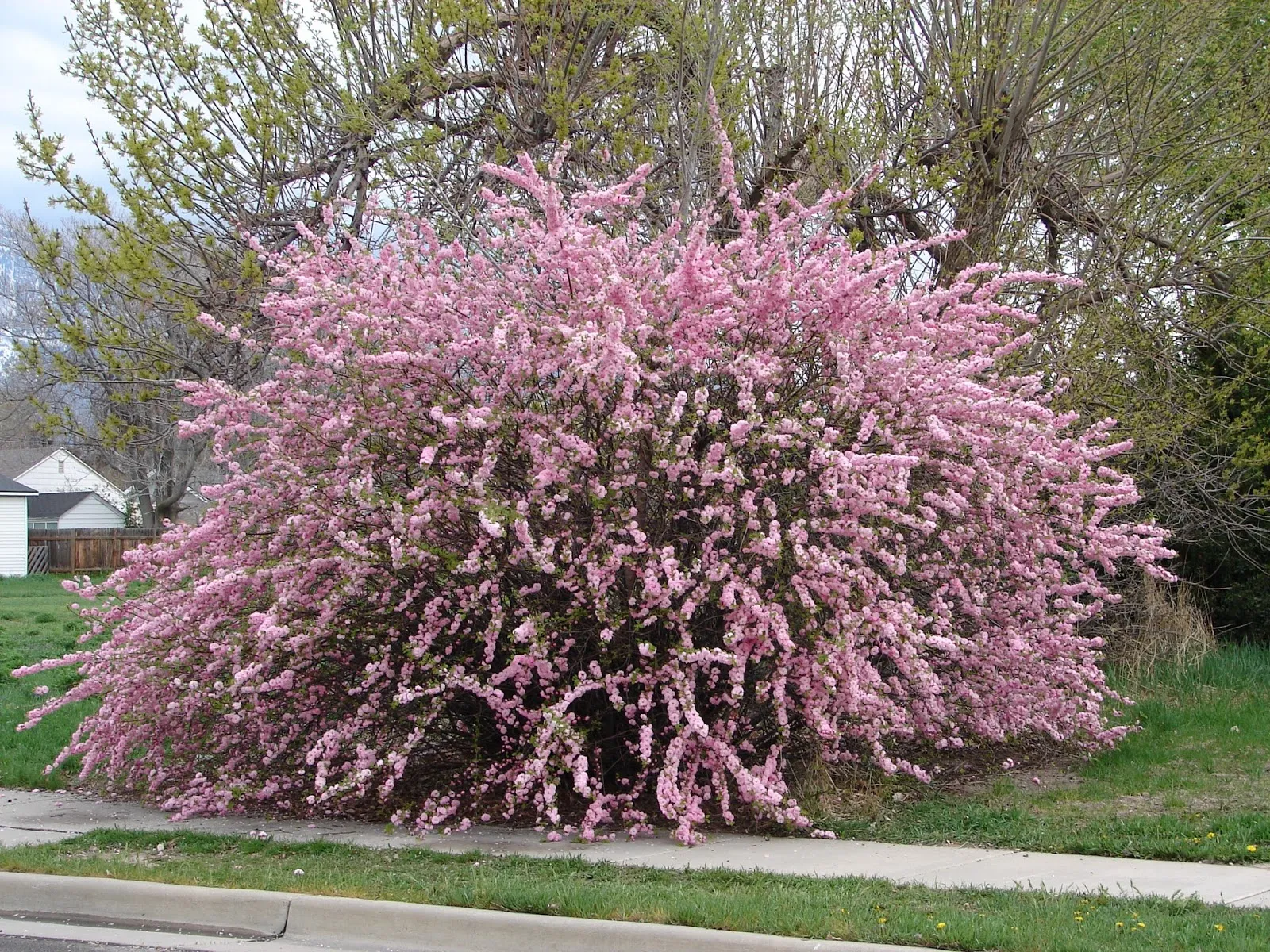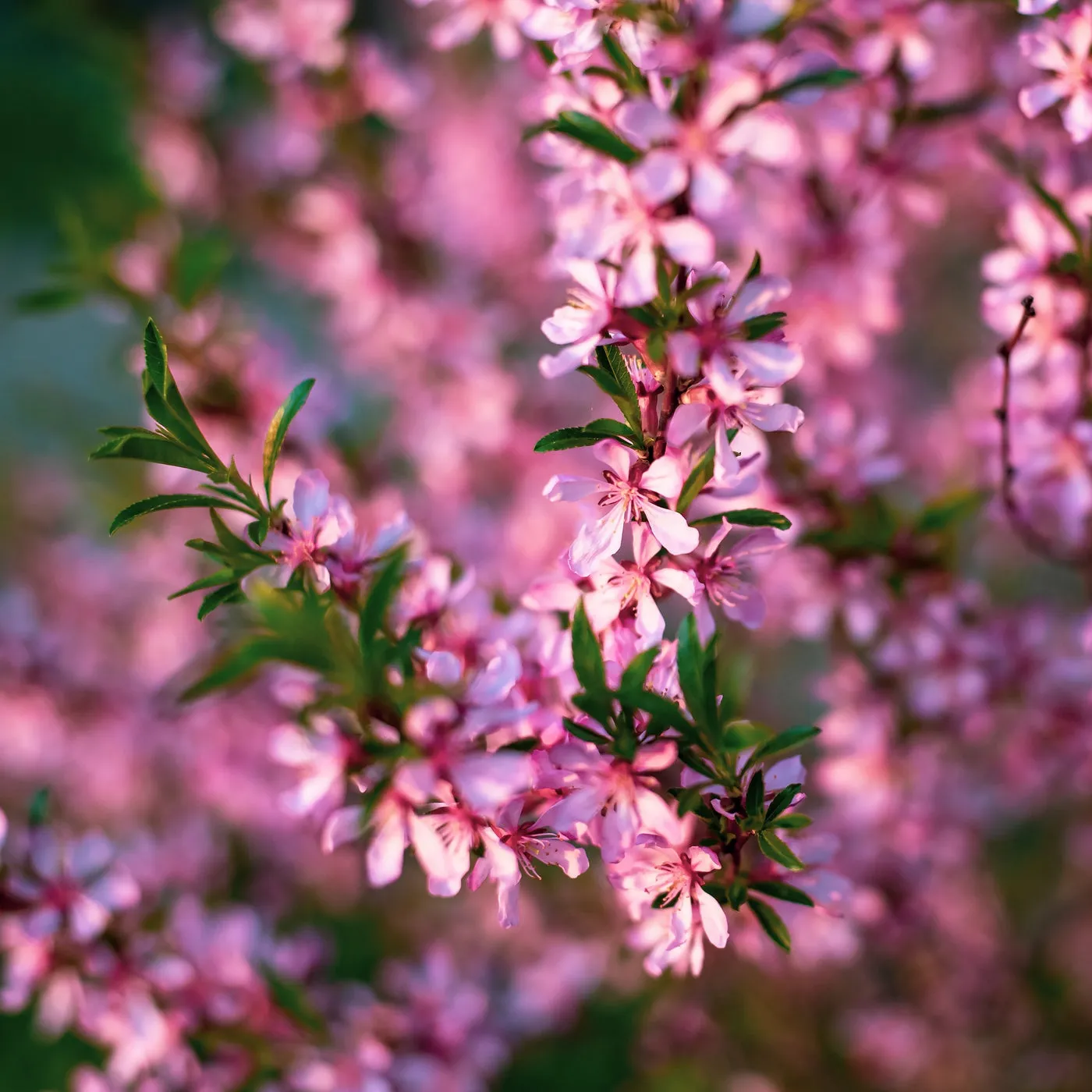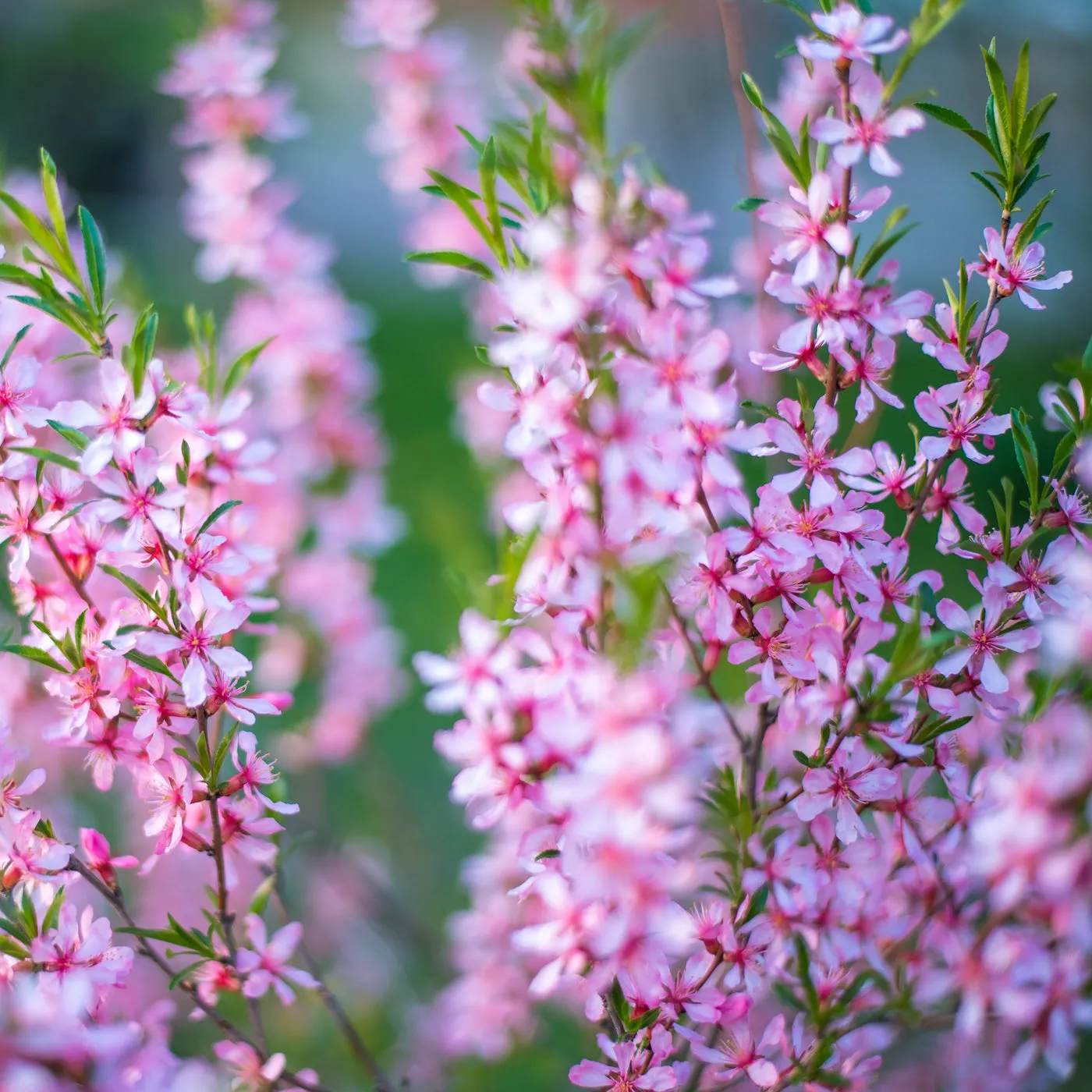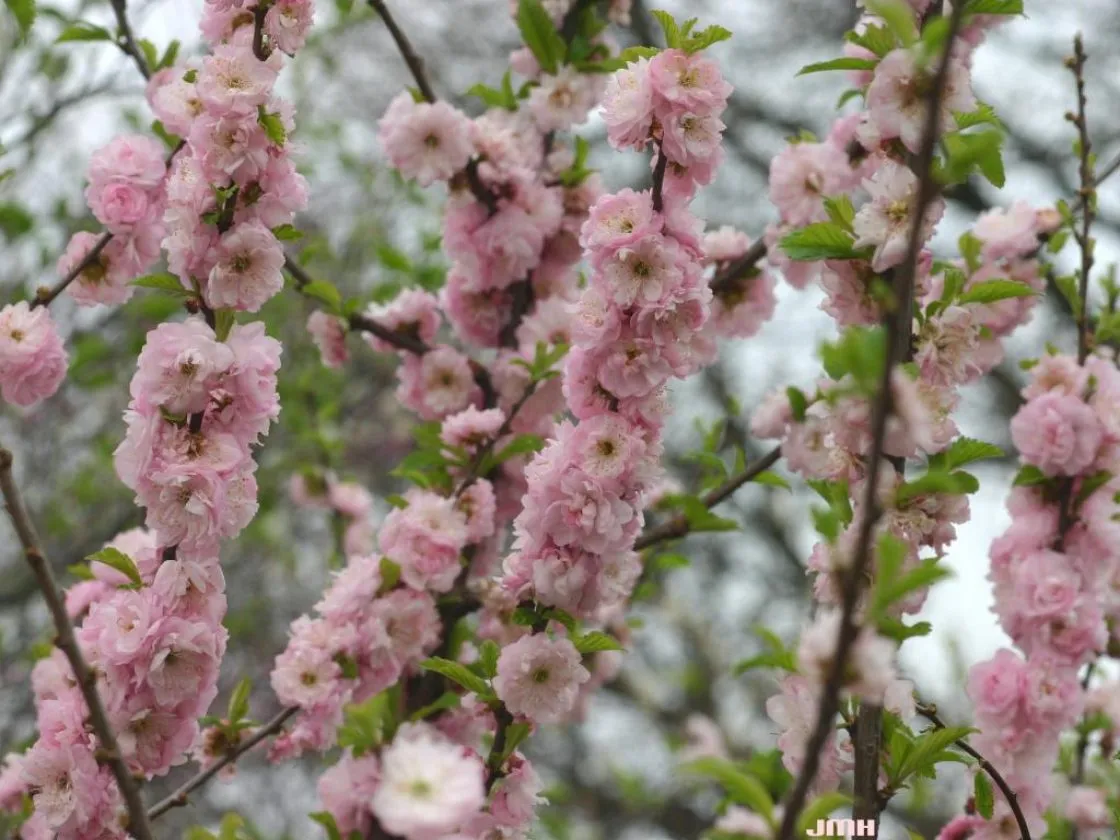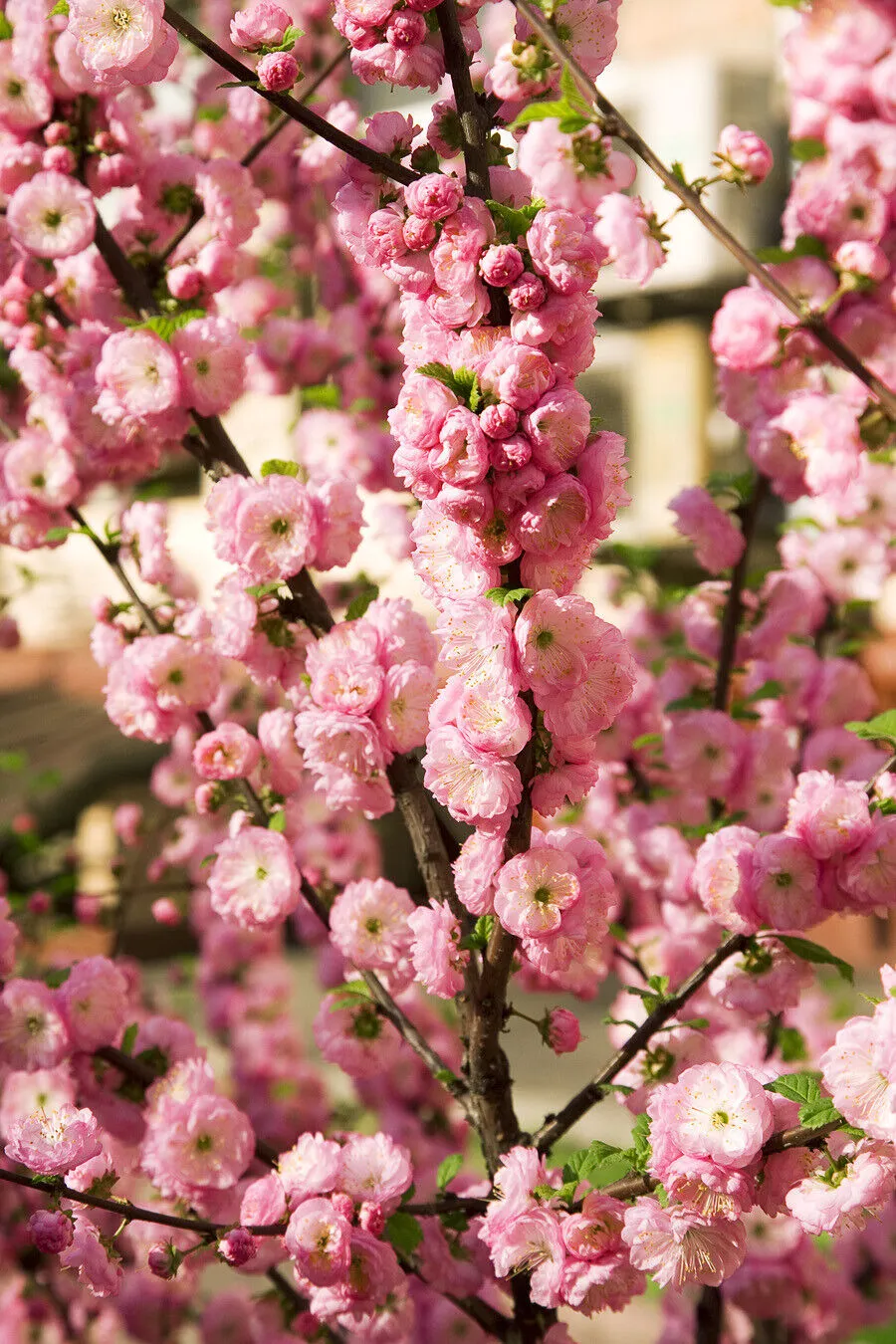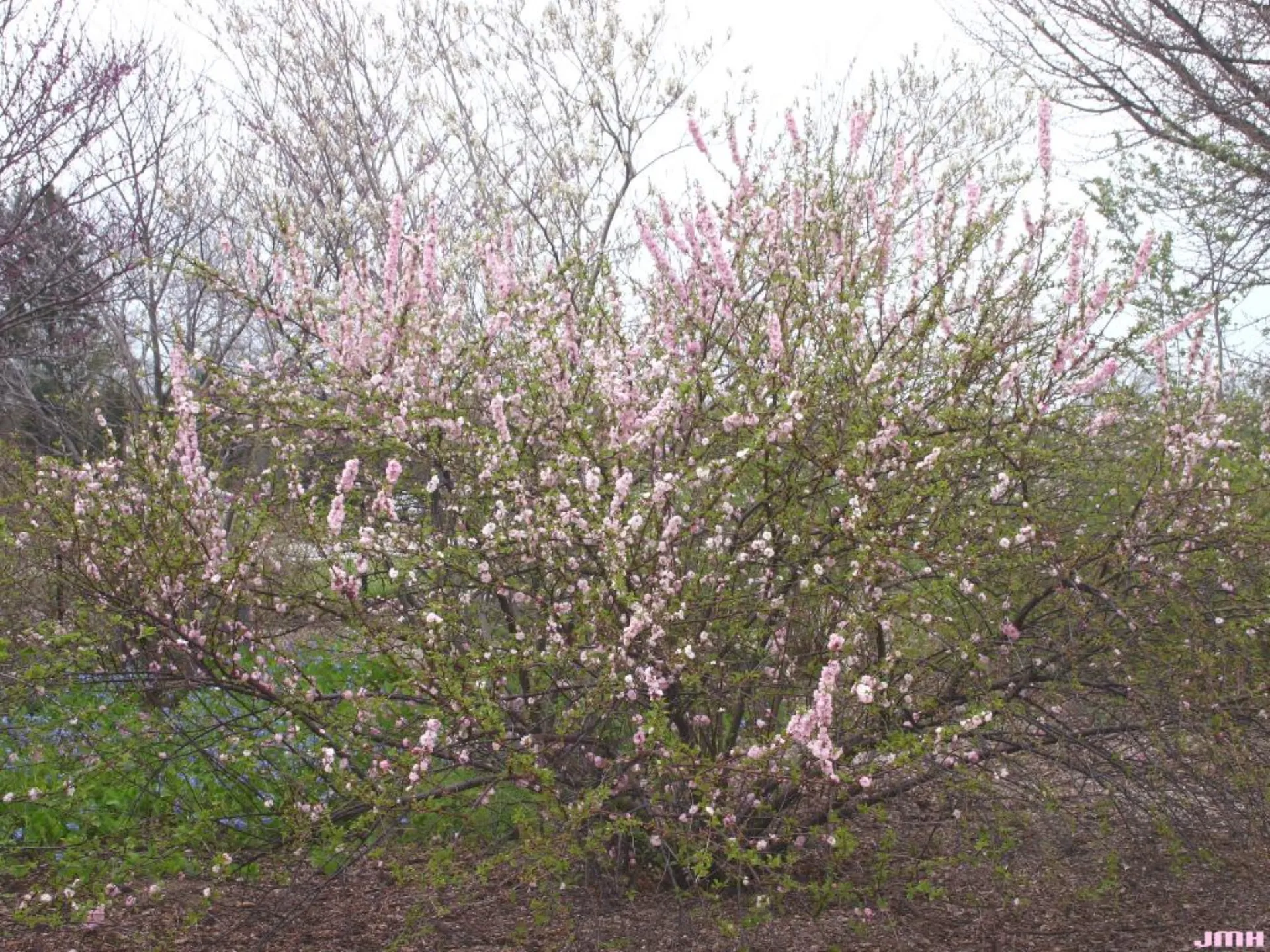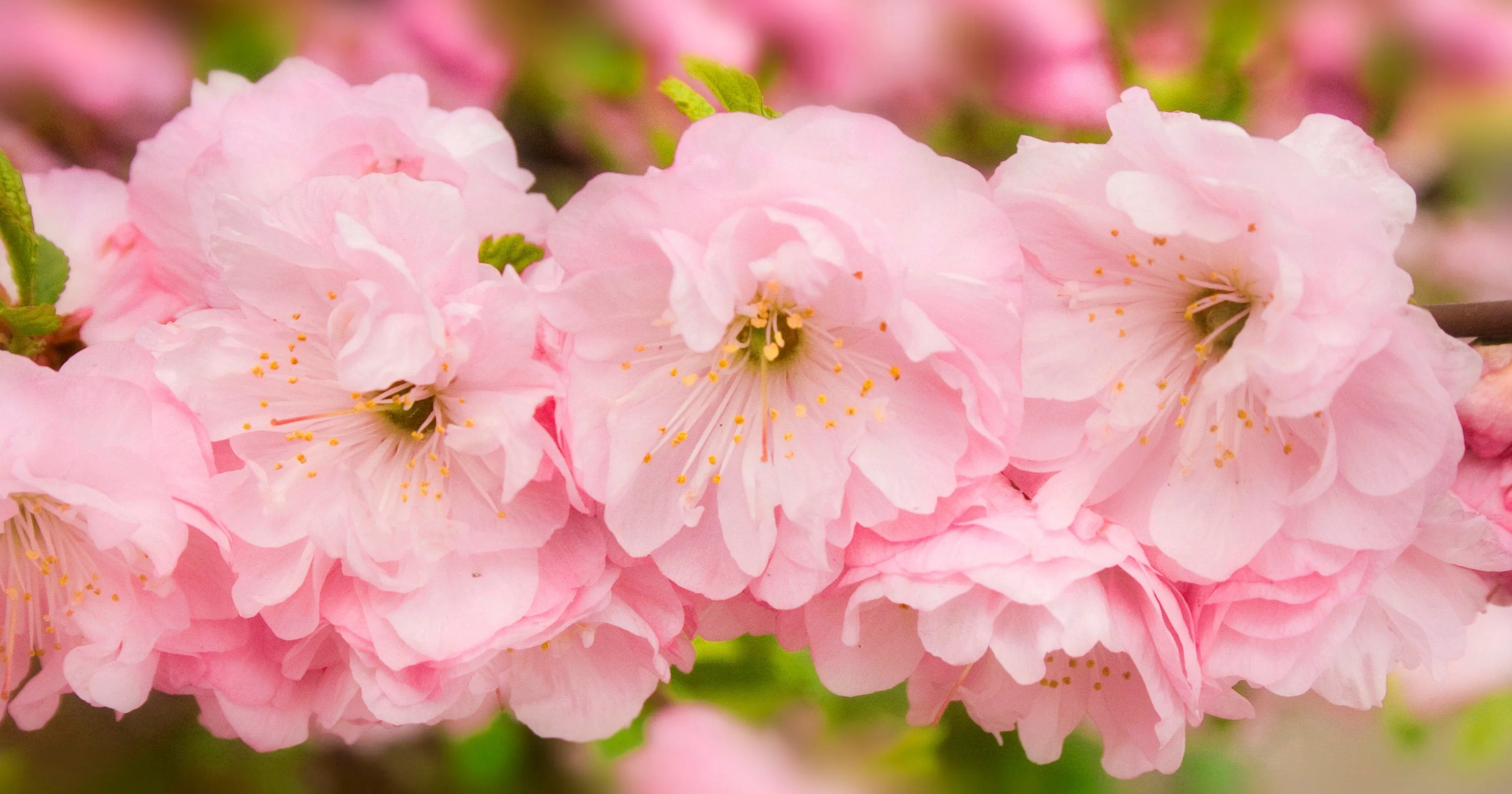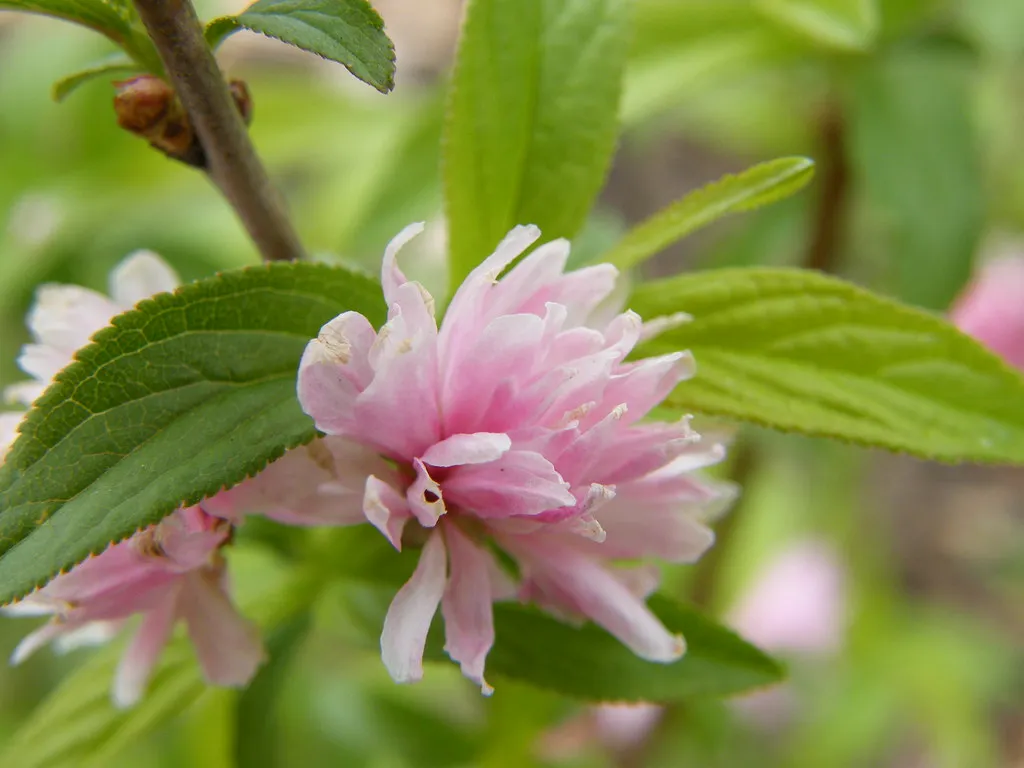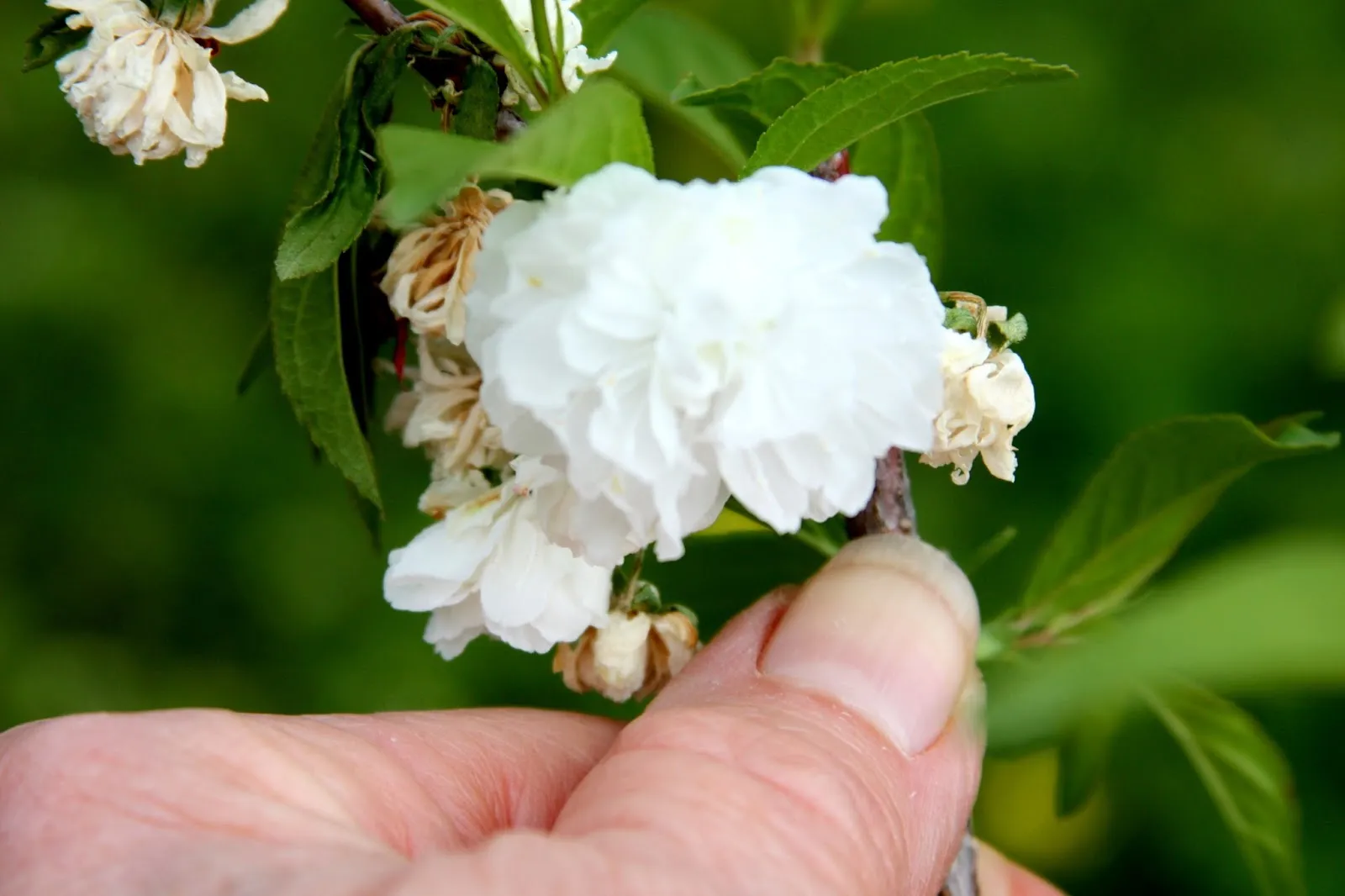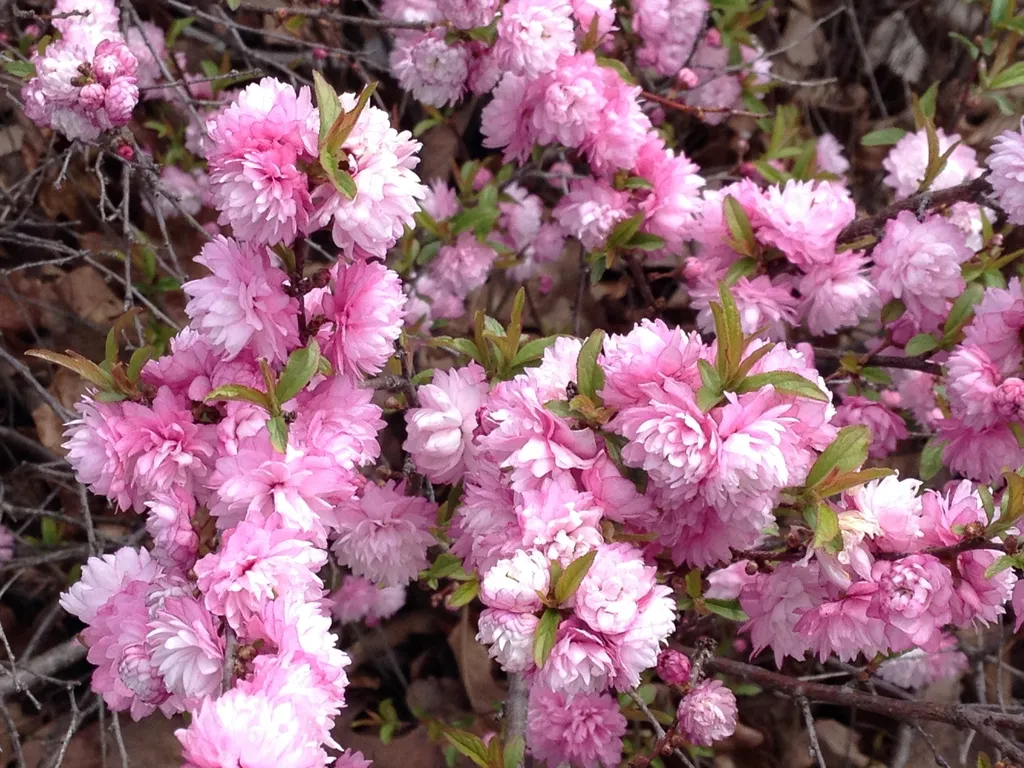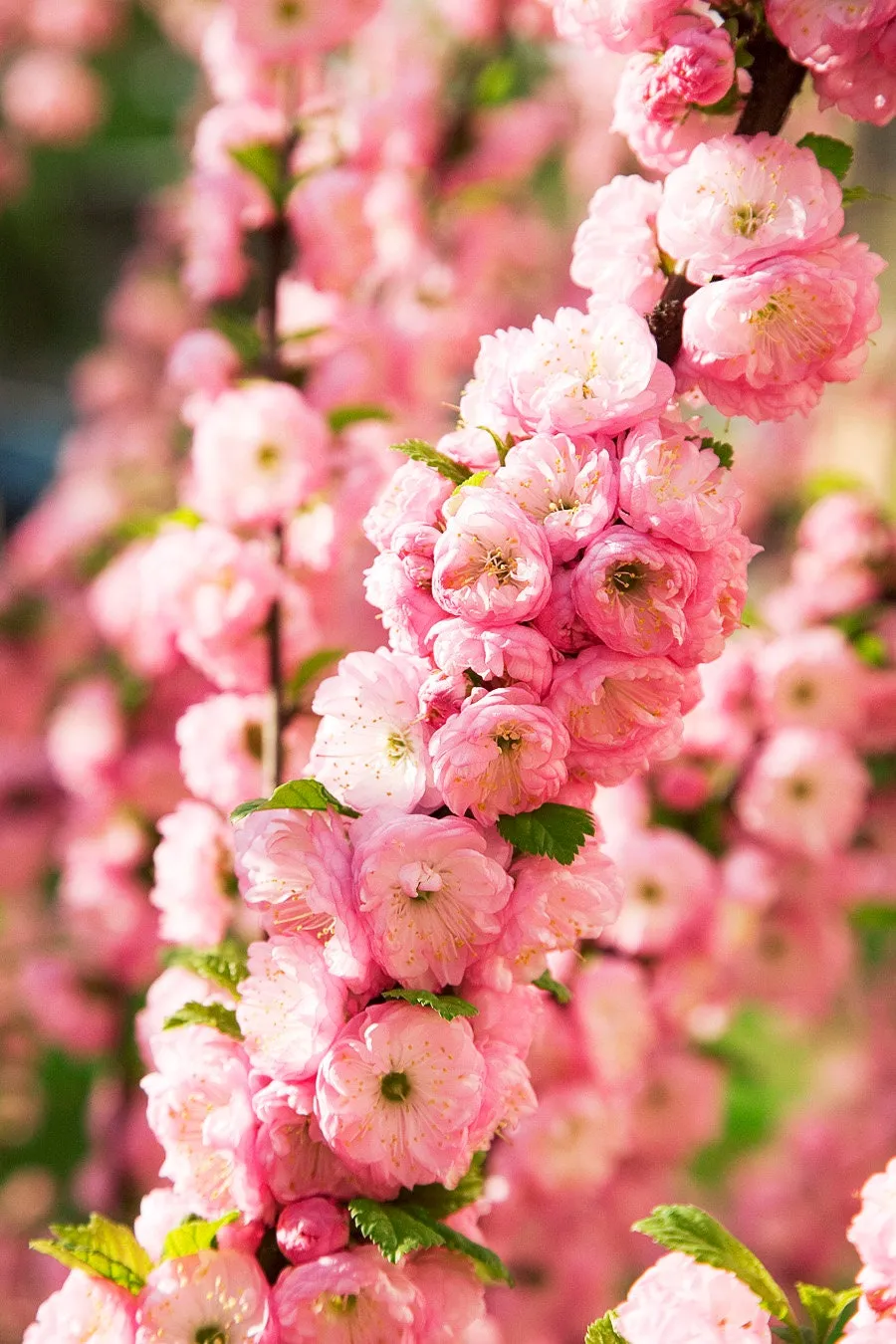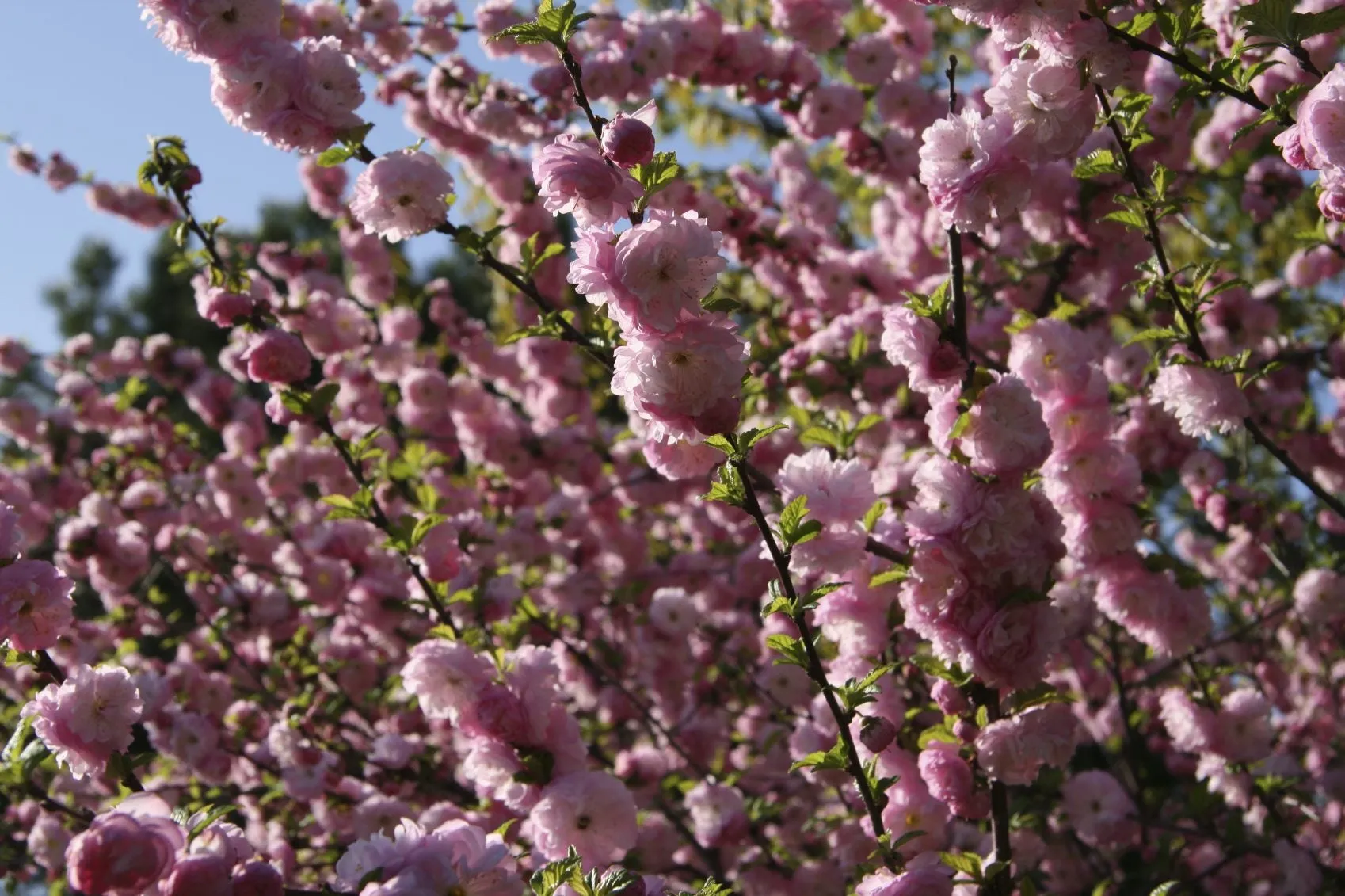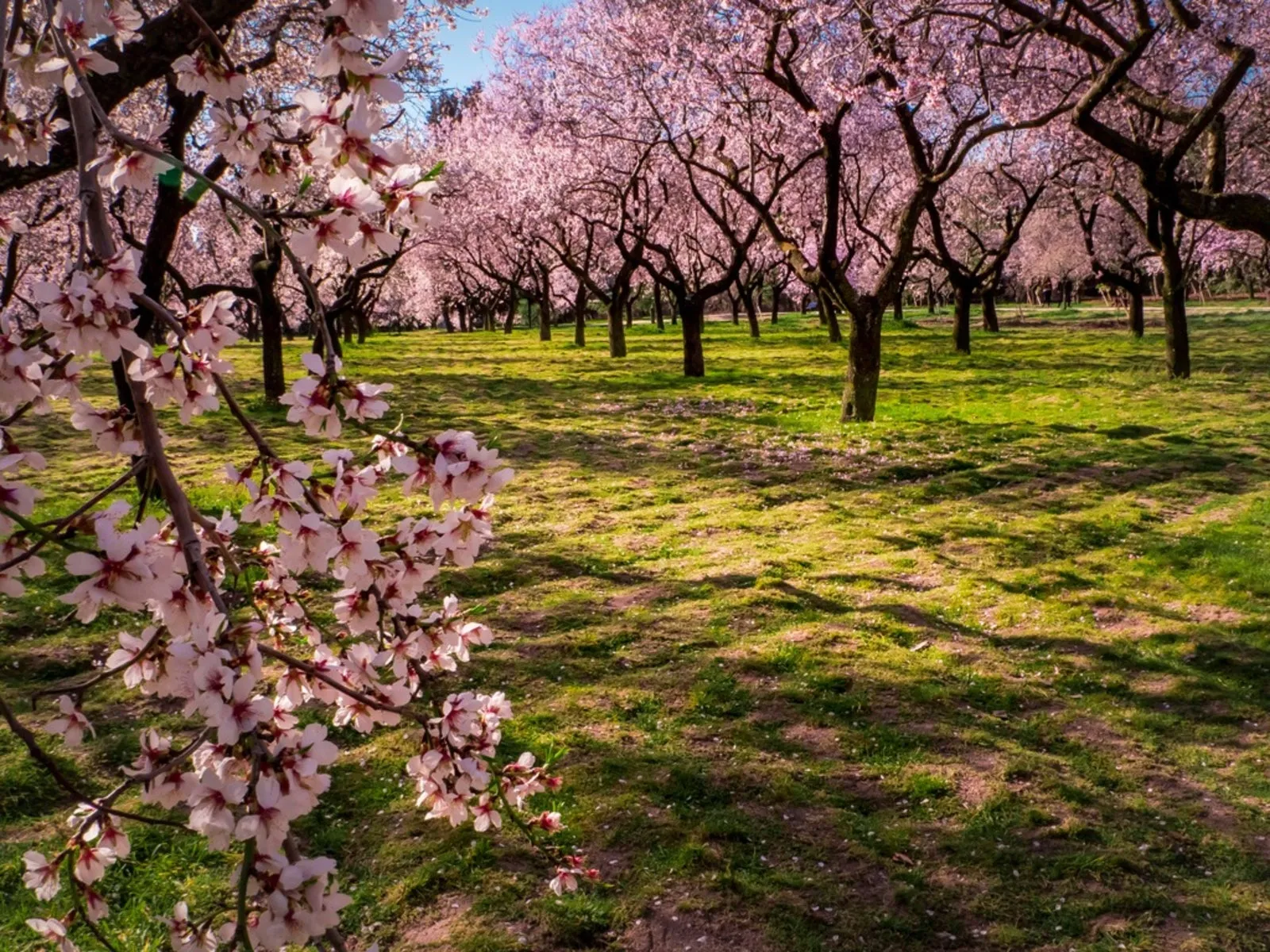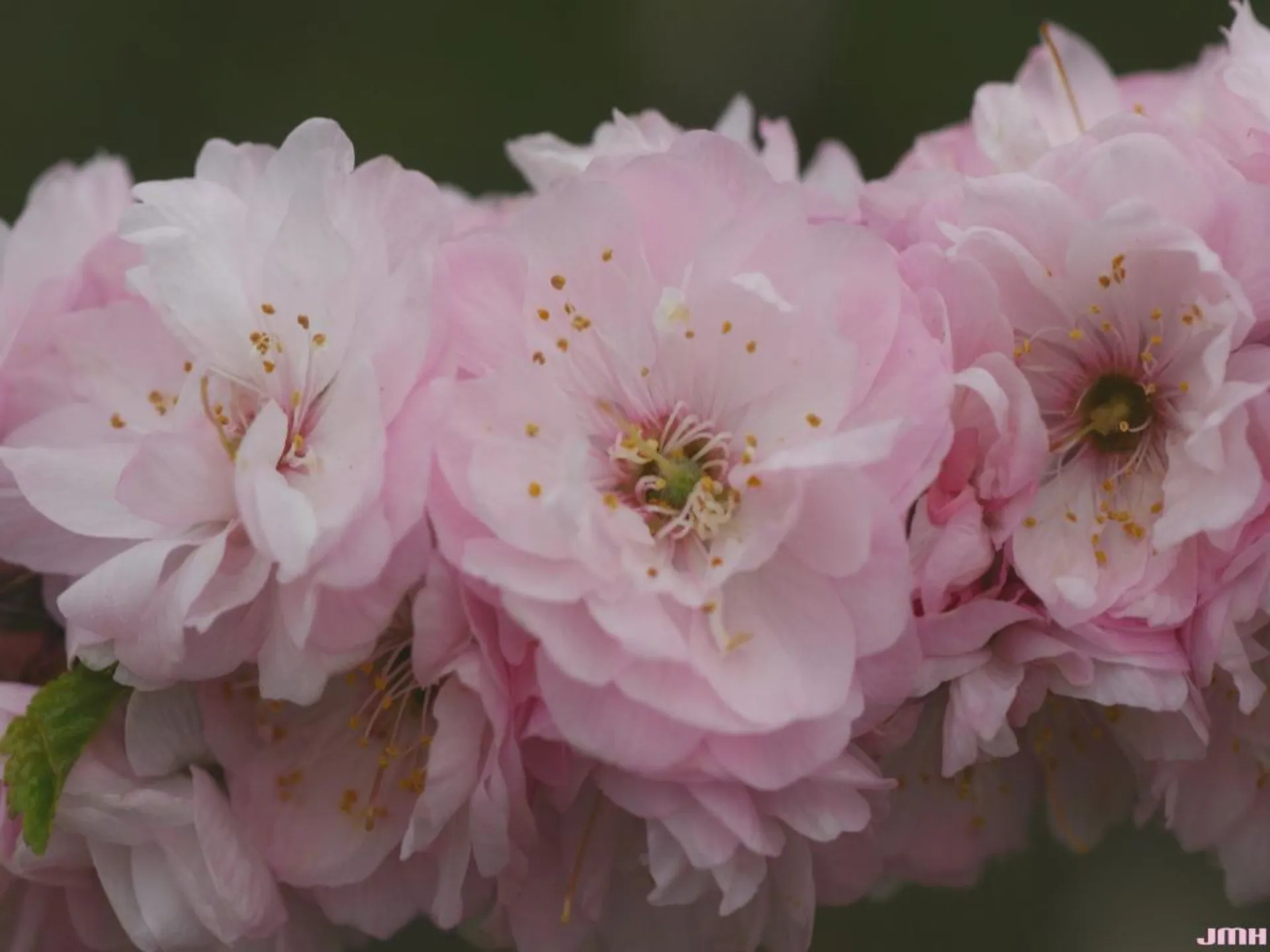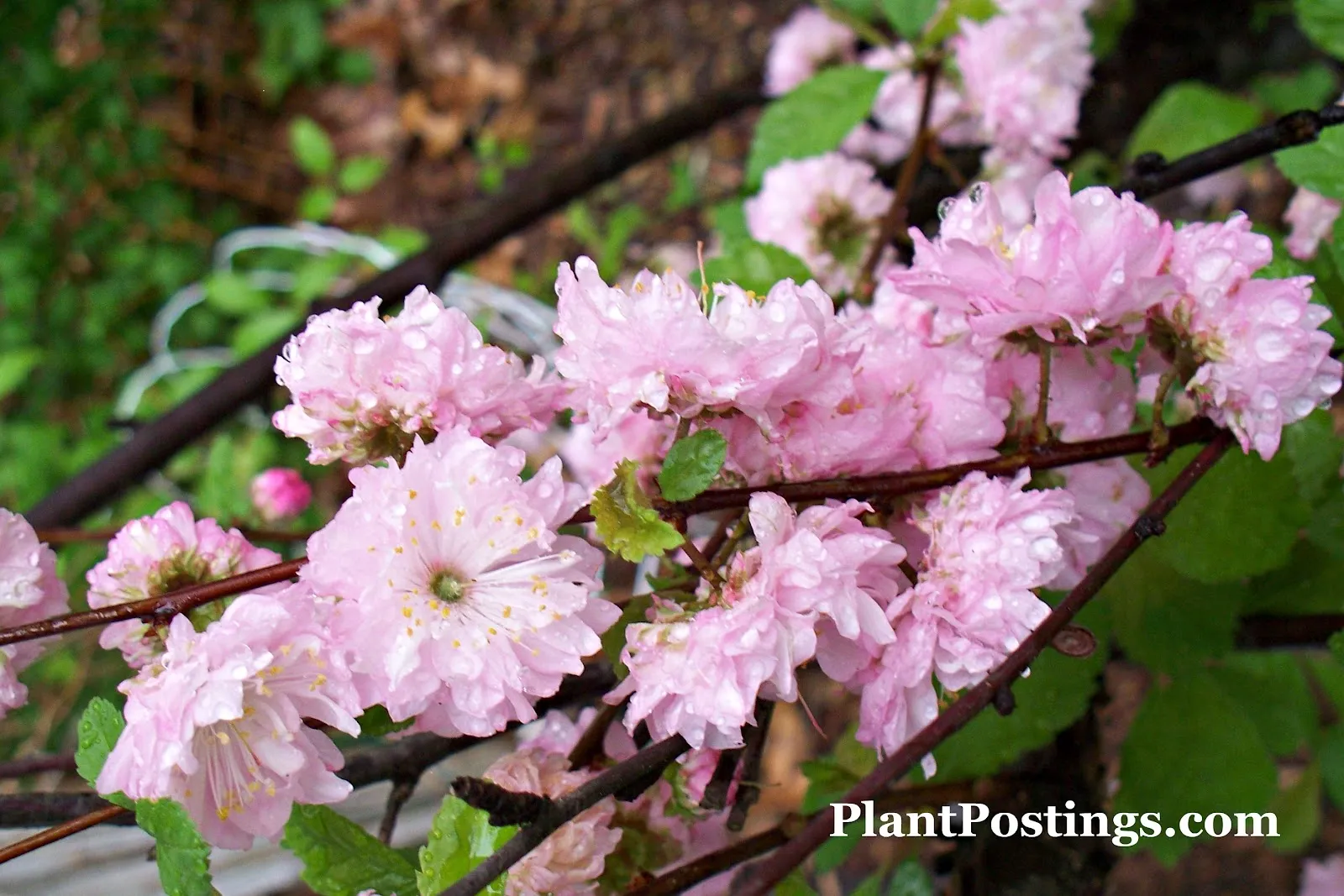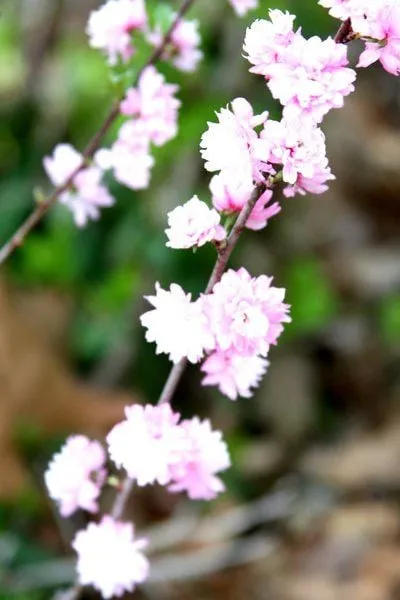Introduction
The Pink flowering almond is a beautiful ornamental plant that belongs to the rose family. This plant is famous for its stunning pink blooms that appear in early spring. The Pink flowering almond is native to China and Japan, and it has been cultivated for centuries as an ornamental plant. The scientific name of Pink flowering almond is Prunus glandulosa, and it is commonly known as Dwarf flowering almond, Chinese dwarf almond, or Almond tree.
Description of Pink Flowering Almond
The Pink flowering almond is a deciduous shrub that grows up to 10 feet tall and 10 feet wide. The plant has a rounded shape and a dense growth habit. The leaves of Pink flowering almond are oval-shaped, serrated, and bright green in color. The foliage is usually produced after the flowering season, and it creates an attractive backdrop for the pink flowers. The Pink flowering almond produces stunning pink flowers in early spring, usually from March to April, depending on the climate. The flowers are small, about 1 inch in diameter, and they bloom in clusters of 2 to 5. The flowers are pink in color, and they have a five-petal structure. The petals are rounded and slightly overlapping, creating a full and fluffy appearance. The flowers have a sweet fragrance, which attracts bees and other pollinators. After the flowering season, the Pink flowering almond produces small, red fruit that is not edible. The fruit is about 1/2 inch in diameter, and it has a dry, woody texture. The fruit is not a significant feature of the plant, and it is usually not harvested.
Cultivation of Pink Flowering Almond
The Pink flowering almond is a hardy plant that is easy to grow and maintain. The plant prefers full sun to partial shade and well-drained soil. The plant is tolerant of various soil types, including sandy, loamy, and clay soils. However, the plant does not tolerate wet or waterlogged soil. The Pink flowering almond is a cold-hardy plant that can withstand temperatures as low as -20°F. The plant is suitable for USDA hardiness zones 4 to 8. The plant requires minimal pruning, and it can be shaped or trimmed after the flowering season to maintain its shape. The Pink flowering almond can be propagated by seed or cuttings. However, the plant does not grow true from seed, and it is recommended to propagate the plant from cuttings. The cuttings should be taken in late summer or early fall and planted in a well-draining potting mix. The cuttings should be kept moist but not waterlogged until they root and establish.
Landscaping with Pink Flowering Almond
The Pink flowering almond is a popular ornamental plant that is widely used in landscaping. The plant is suitable for various garden styles, including cottage gardens, formal gardens, and Japanese gardens. The plant is often used as a specimen plant, a hedge, or a border plant. The Pink flowering almond is often planted in groups to create a stunning mass display of pink flowers in early spring. The plant can be combined with other spring-flowering plants, such as tulips, daffodils, and hyacinths, to create a colorful spring garden. The plant also looks stunning when planted with evergreen shrubs or trees, which provide a contrasting backdrop for the pink flowers. The Pink flowering almond is also suitable for container gardening. The plant can be grown in a large container on a patio or a balcony, where it can be enjoyed up close. The plant requires regular watering when grown in a container, and it should be fertilized regularly during the growing season.
Benefits of Pink Flowering Almond
The Pink flowering almond is not only a beautiful ornamental plant, but it also has several benefits. The plant is a valuable source of nectar for bees and other pollinators, which helps to support the local ecosystem. The plant is also deer-resistant, which makes it suitable for gardens with deer problems. The Pink flowering almond is also a low-maintenance plant that requires minimal care. The plant is disease-resistant and pest-resistant, which reduces the need for chemical treatments. The plant is also drought-tolerant once established, which reduces the need for watering.
Conclusion
The Pink flowering almond is a stunning ornamental plant that is easy to grow and maintain. The plant produces beautiful pink flowers in early spring and has several benefits, including its value as a source of nectar for pollinators and its low-maintenance requirements. The plant is suitable for various garden styles and can be used as a specimen plant, a hedge, or a border plant. The Pink flowering almond is a must-have plant for any garden that values beauty, biodiversity, and sustainability.
Frequently asked questions about Pink flowering Almond wallpapers
Frequently Asked Questions for Pink Flowering Almond Pictures
- What is Pink Flowering Almond?
Pink Flowering Almond is a deciduous shrub that produces pink flowers in early spring. It is also known as Prunus glandulosa. - How many pictures of Pink Flowering Almond are available on your website?
We have a collection of 22 high-quality images of Pink Flowering Almond that you can download for free. - What is the category of these pictures?
These pictures fall under the category of "Flowers". - Are the pictures free to download?
Yes, all the pictures of Pink Flowering Almond are available for free download. - What file types are available for download?
We offer three file types for download: .jpg, .png, and .webp. - Can I choose the size of the picture?
Yes, you can choose the size of the picture by specifying the width and height. We also automatically detect the visitor's mobile screen size and choose the right size for them. - How do I download the pictures?
To download the pictures, simply click on the download button located below the image. You can choose the file type and size before downloading. - Can I use these pictures for commercial purposes?
Yes, you can use these pictures for commercial purposes. However, we do not allow the resale of our pictures. - Can I modify the pictures before using them?
Yes, you can modify the pictures to suit your needs. - Do I need to give credit to the website when using these pictures?
While it is not required, we appreciate it if you give credit to our website when using these pictures.


